
Candide, ou l'Optimisme is a French satire written by Voltaire, a philosopher of the Age of Enlightenment, first published in 1759. The novella has been widely translated, with English versions titled Candide: or, All for the Best (1759); Candide: or, The Optimist (1762); and Candide: Optimism (1947). It begins with a young man, Candide, who is living a sheltered life in an Edenic paradise and being indoctrinated with Leibnizian optimism by his mentor, Professor Pangloss. The work describes the abrupt cessation of this lifestyle, followed by Candide's slow and painful disillusionment as he witnesses and experiences great hardships in the world. Voltaire concludes Candide with, if not rejecting Leibnizian optimism outright, advocating a deeply practical precept, "we must cultivate our garden", in lieu of the Leibnizian mantra of Pangloss, "all is for the best" in the "best of all possible worlds".

François-Marie Arouet, known by his nom de plumeM. de Voltaire, was a French Enlightenment writer, philosopher (philosophe), satirist, and historian. Famous for his wit and his criticism of Christianity and of slavery, Voltaire was an advocate of freedom of speech, freedom of religion, and separation of church and state.

Audrey Justine Tautou is a French actress. She made her acting debut at age 18 on television, and her feature film debut in Venus Beauty Institute (1999), for which she received critical acclaim and won the César Award for Most Promising Actress.

The History of Rasselas, Prince of Abissinia, originally titled The Prince of Abissinia: A Tale, though often abbreviated to Rasselas, is an apologue about bliss and ignorance by Samuel Johnson. The book's original working title was "The Choice of Life". The book was first published in April 1759 in England. Early readers considered Rasselas to be a work of philosophical and practical importance and critics often remark on the difficulty of classifying it as a novel.
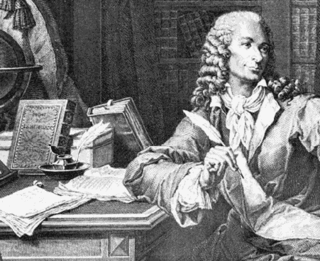
"A few acres of snow" is one of several quotations from 18th-century writer French Voltaire, indicative of his sneering evaluation of the colony of Canada as lacking economic value and strategic importance to 18th-century France.
Cunégonde is a fictional character in Voltaire's 1759 novel Candide. She is the title character's aristocratic cousin and love interest.

Candide is an operetta with music composed by Leonard Bernstein and lyrics primarily by the poet Richard Wilbur, based on the 1759 novella of the same name by Voltaire. Other contributors to the text were John Latouche, Dorothy Parker, Lillian Hellman, Stephen Sondheim, John Mauceri, John Wells, and Bernstein himself. Maurice Peress and Hershy Kay contributed orchestrations.
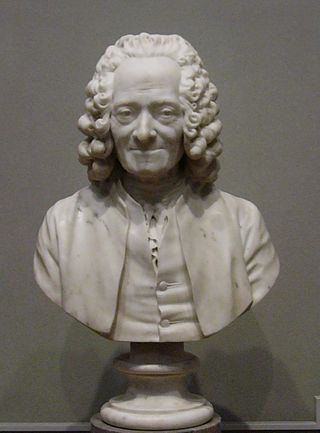
18th-century French literature is French literature written between 1715, the year of the death of King Louis XIV of France, and 1798, the year of the coup d'État of Bonaparte which brought the Consulate to power, concluded the French Revolution, and began the modern era of French history. This century of enormous economic, social, intellectual and political transformation produced two important literary and philosophical movements: during what became known as the Age of Enlightenment, the Philosophes questioned all existing institutions, including the church and state, and applied rationalism and scientific analysis to society; and a very different movement, which emerged in reaction to the first movement; the beginnings of Romanticism, which exalted the role of emotion in art and life.
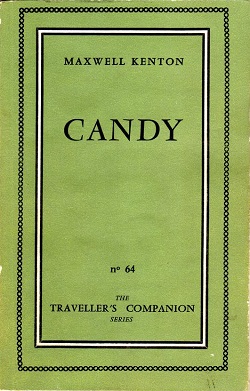
Candy is a 1958 novel written by Maxwell Kenton, the pseudonym of Terry Southern and Mason Hoffenberg, who wrote it in collaboration for the "dirty book" publisher Olympia Press, which published the novel as part of its "Traveller's Companion" series. According to Hoffenberg,
Terry Southern and I wrote Candy for the money. Olympia Press, $500 flat. He was in Switzerland, I was in Paris. We did it in letters. But when it got to be a big deal in the States, everybody was taking it seriously. Do you remember what kind of shit people were saying? One guy wrote a review about how Candy was a satire on Candide. So right away I went back and reread Voltaire to see if he was right. That's what happens to you. It's as if you vomit in the gutter and everybody starts saying it's the greatest new art form, so you go back to see it, and, by God, you have to agree.

Anna Gavalda is a French novelist.
Literature of the 18th century refers to world literature produced during the years 1700–1799.
Lee Langley is a British writer born in Calcutta, India.
Pope Urban X is a fictional pope created by French writer Voltaire in his 1759 novel Candide. Voltaire did this in order to avoid any consequences that would be incurred upon him, for in Candide Pope Urban X has an illegitimate child. In Chapter 11 an old woman declares herself to be the daughter of Pope Urban X and the Princess of Palestrina. Voltaire was being particularly cautious, since at the time and the highest numbered Pope Urban was the eighth.
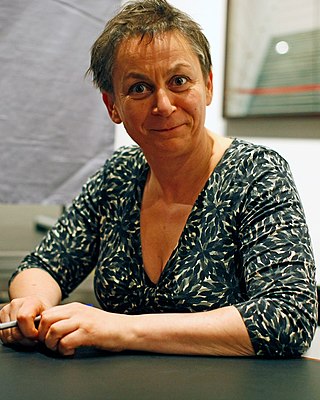
Anne Teresa Enright is an Irish writer. The first Laureate for Irish Fiction (2015–2018) and winner of the Man Booker Prize (2007), she has published eight novels, many short stories, and a non-fiction work called Making Babies: Stumbling into Motherhood, about the birth of her two children. Her essays on literary themes have appeared in the London Review of Books and The New York Review of Books, and she writes for the books pages of The Irish Times and The Guardian. Her fiction explores themes such as family, love, identity and motherhood.

The "Poème sur le désastre de Lisbonne" is a poem in French composed by Voltaire as a response to the 1755 Lisbon earthquake. It is widely regarded as an introduction to Voltaire's 1759 acclaimed novel Candide and his view on the problem of evil. The 180-line poem was composed in December 1755 and published in 1756. It is considered one of the most savage literary attacks on optimism.
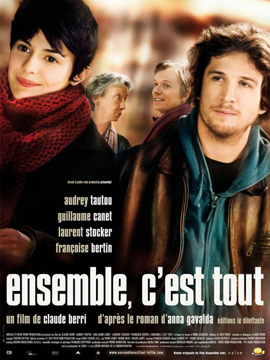
Hunting and Gathering is a 2007 French romantic film based on the writer Anna Gavalda's 2004 novel Hunting and Gathering. It was directed by Claude Berri, who also wrote the screenplay, and stars Audrey Tautou, Guillaume Canet, Laurent Stocker, Françoise Bertin and Alain Sachs. It premiered on 21 March 2007.
Candide ou l'Optimisme du XXe siècle is a 1960 French comedy drama film directed by Norbert Carbonnaux and written by Carbonnaux and Albert Simonin. It stars Jean-Pierre Cassel as Candide, Pierre Brasseur as Pangloss, Louis de Funès as the officer of the Gestapo, and Daliah Lavi as Cunégonde. The film was released under the titles Candide, Candide oder der Optimismus im 20. Jahrhundert, Candide, avagy a XX. század optimizmusa (Hungary), and Kandyd czyli optymizm XX wieku (Poland).
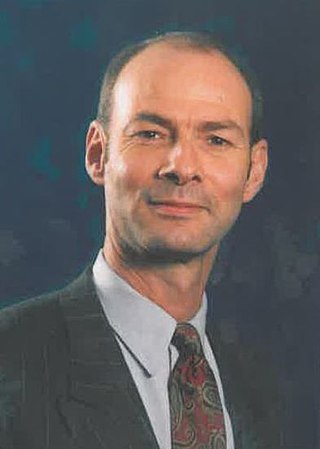
Edward M. Langille has been a professor of Modern Languages at St. Francis Xavier University in Antigonish, Nova Scotia, since 1989. He specializes in the area of Enlightenment studies, and is one of Canada’s leading experts on Voltaire and his works. He is the North American correspondent for Société des études voltairiennes, an international organization that promotes and coordinates research, events and publications relating to Voltaire. Langille also specializes in studies of Acadian culture and history.

I Wish Someone Were Waiting for Me Somewhere is a collection of twelve short stories written by Anna Gavalda.

Roy Wolper is an American scholar and writer. A full-time professor at Temple University from 1967 to 1998, and a writer of fiction, he co-founded The Scriblerian and the Kit-Cats, a review journal for English literature, and served as its editor for nearly fifty years.















